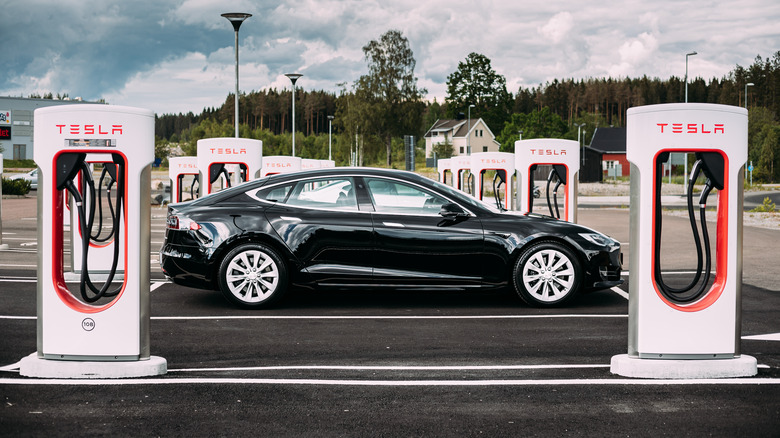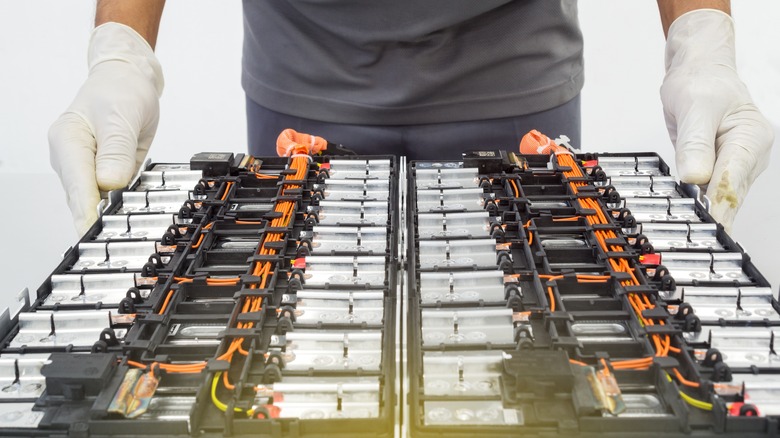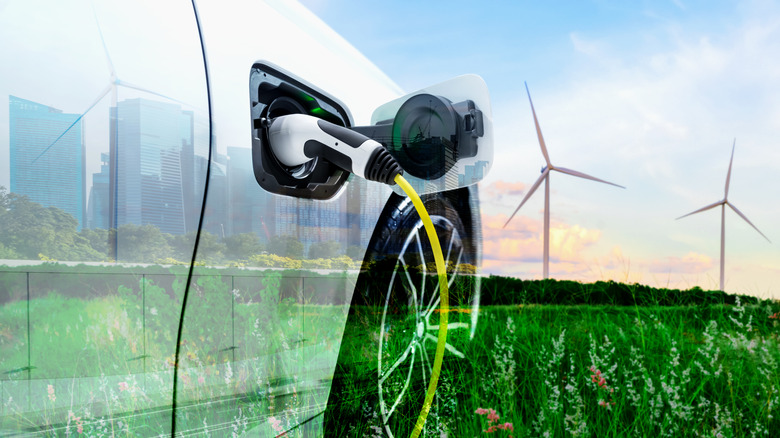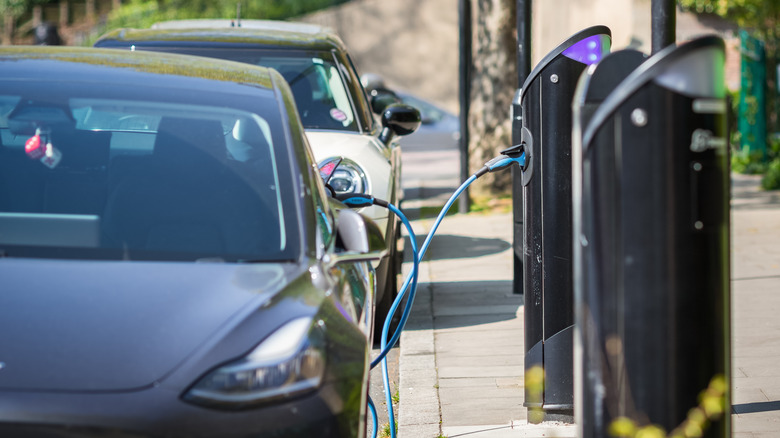Nearly 25% Of People Surveyed Believe This Myth About Electric Vehicles
Electric vehicles (EVs) are becoming more and more popular. The sheer number found on the road is also likely to continue increasing as governments and manufacturers continue to heavily back the concept. SlashGear surveyed 588 of our U.S.-based readers to find out what their main concerns were regarding electric vehicles. Some of the concerns were unfounded, while others are arguably justified or based on partially-correct information. Either way, governments and EV manufacturers will have to work to overcome these doubts if battery-powered transportation is going to be the way most of us get around in future.
Electric vehicle safety wasn't a common concern amongst respondents, with just over 10% believing that EVs aren't as safe as gasoline vehicles. While there have been several high-profile stories involving EVs catching fire, regular cars occasionally burst into flames too. Data from one manufacturer suggests EVs are up to 10 times less likely to catch fire than conventional vehicles. While that concern may be held by a fringe minority, other concerns are more common and might be well-founded. Here's a detailed breakdown of what our readers said concerns them about electric vehicles, what's a complete myth, and what might actually be true.
People have their doubts about EV batteries
Close to a quarter of people we surveyed expressed concerns about how long electric vehicle batteries will last, and what might happen to them afterwards. A total of 24.66% of the 588 respondents claimed that EV batteries don't last long and will end up in landfills. This is a fairly inaccurate statement on both counts, as things stand, and it will only become more wrong in the future. In the United States, federal law demands that all batteries used in electric vehicles must be guaranteed for at least eight years or 100,000 miles. An EV's batteries are very expensive to replace, and also vital for vehicle function. The closest comparison would be a total engine replacement in a regular vehicle, which can set you back thousands. The current federal minimum standard is roughly in line with the life expectancy of older engines, which are eight years or around 150,000 miles. Modern engines are a lot better, and should be expected to last ten years or 200,000 miles (Via Rivendale Automotive). However, you could argue the longer life expectancy is balanced out by the fact EV batteries have a guarantee, whereas guarantees on regular car parts might only last three or four years.
As for what happens to the batteries afterwards, recycling is an ideal solution and it's something most major EV companies are working on. Industry leader Tesla claims none of the batteries it replaces are sent to landfill, with 100% being recycled. The batteries that aren't directly recycled can also find other uses. Even with a reduced capacity, they can be used to store energy generated by various green projects.
Some think EVs could be worse for the environment
A similar number of people surveyed also believe that EVs are actually worse for the environment than gasoline cars with 23.81% of the 588 respondents sharing that particular belief. Here, they aren't entirely wrong. In certain circumstances a gas-powered car is a more environmentally sound purchase than an electric vehicle. Electric vehicle production is more energy-intensive than the production of a standard car. The batteries in particular require rare earth metals that have to be shipped around the world at various points.
Recent research claims it will take an electric vehicle around 19,000 miles, which is close to two years of average use, before it offsets the excess carbon that was produced when it was manufactured. However, once this deficit is overcome, electric vehicles typically become a far greener option. When both kinds of vehicles hit 200,000 miles, the EV may be responsible for around 41% fewer emissions than its gas counterpart.
Things may not actually be that clear cut, however. If you live in an area where most of the energy production is from carbon-neutral sources, then your EV will be a lot more environmentally friendly than ones in areas that are still reliant on fossil fuels for energy generation. Battery replacement may be a major factor too. The batteries in an EV will likely need replacing within 200,000 miles, and those are the main source of the initial carbon deficit. Gas-powered cars will also need major parts replacing during that time, but none of those are as environmentally damaging to produce. So in certain circumstances, the quarter of our readers who have concerns about an EV's environmental impact may have a point.
Charging station scarcity was the most common concern
By far, the biggest concern the people we surveyed had related to the availability of charging stations. Close to half, 41.6%, of the survey's respondents, said charging stations are hard to find. These concerns are well-founded as charging infrastructure is arguably the biggest issue facing electric vehicles at the moment. Chargers aren't evenly distributed throughout the country, and there are issues with placement in most states. States with a high number of EV users, like California, have the most chargers in terms of raw numbers, but even those aren't enough. In terms of chargers per EV somewhere like Wyoming are way ahead of the Golden State. But things won't be ideal in Wyoming either. Although it has the most chargers per vehicle, the size of the state coupled with the fact that it still only has 3,000 charging ports means EV enthusiasts may struggle to find somewhere to plug in on the road. Even when there is a station nearby, other reported issues include charging ports being out of order or occupied when a driver arrives to charge up. As a result, over 90% of EV drivers mainly charge their vehicles at home or work (via GM).
This problem is widely recognized, and both governments and large businesses are spending billions in an attempt to rectify it. The Biden Administration is aiming to make over half a million charging ports available nationwide by 2030. Businesses like Volkswagen, Pilot, and Siemens are also investing heavily in charging infrastructure. So while the lack of charging stations is a major issue right now, that may not be the case in a few years' time.



